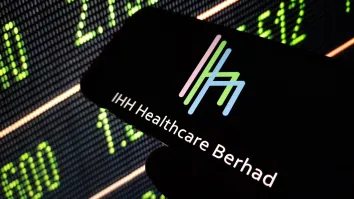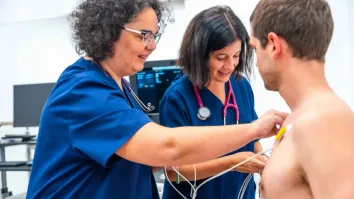Axios International aims to hasten patient access to innovative treatments in SE Asia
Dr. Joseph Saba, co-founder and CEO of Axios International, highlights strategies to overcome institutional barriers for swift delivery of critical treatments in the region.
As patients face hurdles in accessing innovative treatments for cancer and other life-threatening diseases, a renowned healthcare expert said two institutional barriers in Southeast Asia healthcare systems must be addressed — lengthy drug registrations and the need for hospitals to bridge the gap between patients and care beyond conventional boundaries.
Dr. Joseph Saba, co-founder and CEO of Axios International, bemoaned how some breakthrough treatments are already available in Europe and the US, but are delayed in countries in Southeast Asia because of the registration processes.
“You know, sometimes it takes months, sometimes years to register a drug,” Saba told Healthcare Asia in a recent interview. “There is no need to have that lengthy way, especially when we have innovative treatments that can save lives.”
Financial and insurance barriers pose additional challenges for patients seeking cutting-edge therapies, he said.
Saba underscored the significance of hospitals expanding their reach beyond brick-and-mortar walls.
With many innovative treatments administered on an outpatient basis, hospital executives must establish robust communication and support systems to ensure patients receive comprehensive care and achieve optimal outcomes, he said.
“Hospitals need to connect to the patient wherever they are. We faced this problem during COVID when we didn’t know where patients were, and this will help the hospital improve drastically the quality of treatment that they deliver,” he elaborated.
Saba said partnering with Axios International can significantly contribute to hospitals’ reputation in delivering high-quality care, subsequently enhancing patient trust and satisfaction.
Axios focuses on working with patients, hospitals, and physicians to ensure that patients can take the full course of treatment and maximise medical benefits.
“Sometimes there are affordability issues. So we help the patient with affordability aspects by working with multiple stakeholders. Sometimes it's related to adherence, following treatment, understanding the treatment. We work with the hospitals to ensure that the patient can take the full course of treatment. In the end, this is what brings the satisfaction to the patient, and as a physician, there is nothing more gratifying for me to see the patient improving,” Dr. Saba added.
At present, Axios International is accessible in several countries in Southeast Asia, including Indonesia, Malaysia, Thailand, Vietnam, and the Philippines. Healthcare providers can work with Axios to develop cost-sharing models that distribute the financial burden of expensive treatments.
Saba also mentioned that healthcare providers are key partners because they send patients to Axios, which then takes care of the obstacles patients may face in getting treatment. This synergy, according to Saba, “works beautifully,” but trust needs to be established.
For patients, Axios engages in dialogues, especially when there are affordability issues, to understand their social and economic situations. This process is relatively simple and collaborative, ensuring patients receive the help they need.
With Saba leading the way, Axios International is stepping up to bridge the gaps in patient access to critical treatments as it commits to breaking down barriers and ensuring that patients receive the necessary care without unnecessary delays.



















 Advertise
Advertise






Commentary
2026 biotech playbook: Hong Kong at the centre of China’s globalisation